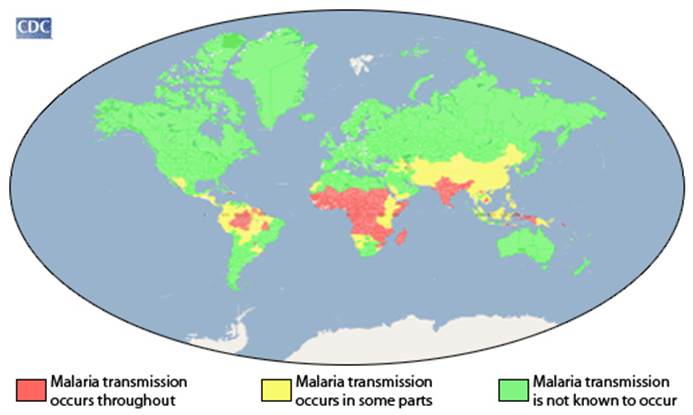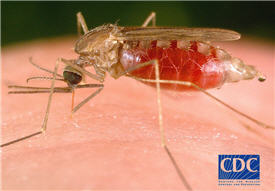The risk of malaria infection continues to be a real risk for seafarers calling at a number of places around the world. Malaria remains one of the most serious diseases in the world and good preventative steps will help to keep crew safe.
The disease
Malaria is a potentially life threatening disease caused by parasites transmitted through the bite of malaria-carrying mosquitos. It is estimated that in 2013 there were close to 200 million cases in the world, with most occurring in sub-Saharan Africa where also most deaths were recorded.
Given that ships will likely call at ports in places where malaria exists, there is some risk to the crew becoming infected through a mosquito bite. Particularly if the vessel carries out cargo operations at berth or otherwise inside a port, or if the crew step ashore for any reason.
With suitable education and advance preparation, however, members can mitigate against this risk.
In the FAQ from Dr. Murphy of HWB, Hong Kong, members will find further information on the disease, how it works, and how practical steps can be taken to protect oneself against it. It is republished alongside this advisory.

Mis-identification as ebola
The Association has had experience last year of incidents where a crewman had contracted malaria, but given the heightened concern over the ebola outbreak there was an issue about correctly identifying the actual disease. In some cases this situation made it difficult to quickly disembark the crew to a local hospital, as local authorities took extra precautions against the possible risk of landing an ebola case.
As there is some similarity between symptoms, in particular at an early stage, it does require clinical testing to achieve absolute certainty as to which disease is being dealt with.
Given that the ebola outbreak in West Africa has not yet fully come to an end, authorities around the world are likely to continue to be on the alert for possible new cases.
As such the risk of a mis-identification of malaria as ebola remains a real challenge, and one which needs to be dealt with quickly when it arises so that the affected crew receives the most appropriate treatment and care.
Loss prevention
The steps that members can take to protect vessels and crews will include the physical blocking of malaria carrying mosquitos, repellents as well as the use of preventive medication.
In particular members can consider the following:
- be aware of the risk, ensure the crew is aware of the risk
- use the CDC's tools to check for particular risk areas
- ensure that the accommodation block, especially cabins are either closed or use screens (screen doors, netting) to prevent access to mosquitos
- during day time, crew should use insect repellent on exposed skin and re-apply the same frequently (within safe parameters)
- minimise the amount of exposed skin by wearing appropriate clothing
- at night time / for crew asleep, the use of Long-Lasting Insecticidal Nets (LLINs) are recommended
- use anti-malaria medicines (but check for crew allergies before use and counter indications during use)
For further reading members are encouraged to follow the links to the respective WHO and CDC websites on malaria.

Mosquito (Source: CDC)
Should members have a crew on board with a suspected malaria infection then urgent contact should be made to arrange appropriate medical assistance, and the usual Skuld business unit should be contacted.
The Association is grateful to Dr. Bernard Murphy of Howse Williams Bowers in Hong Kong for assisting with this update.